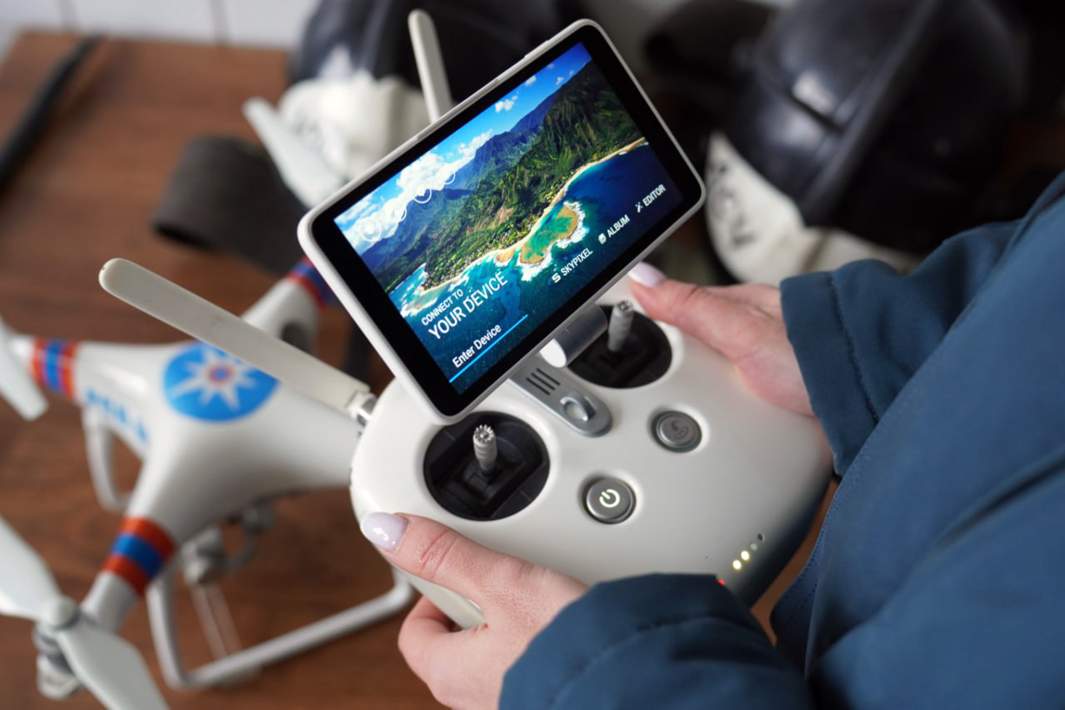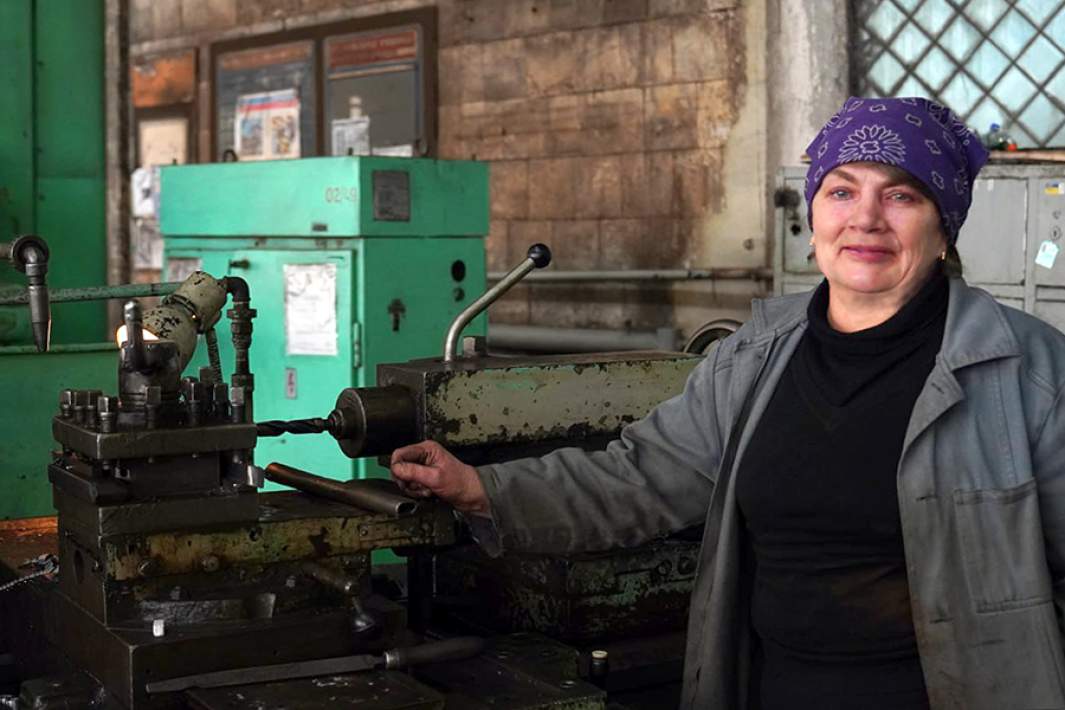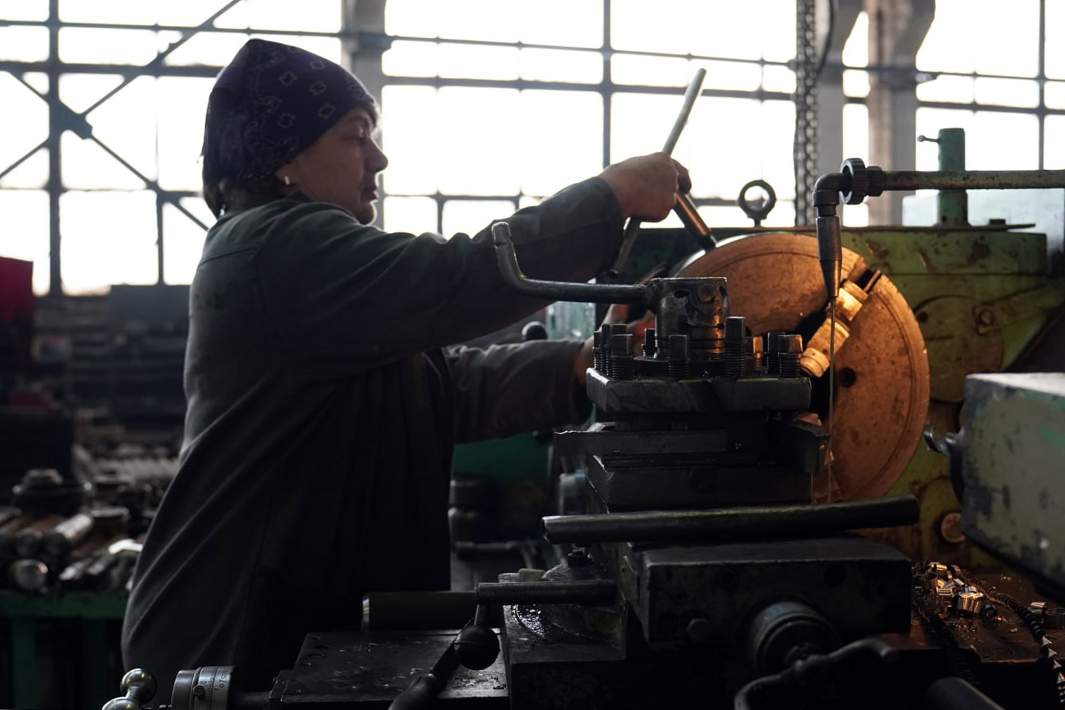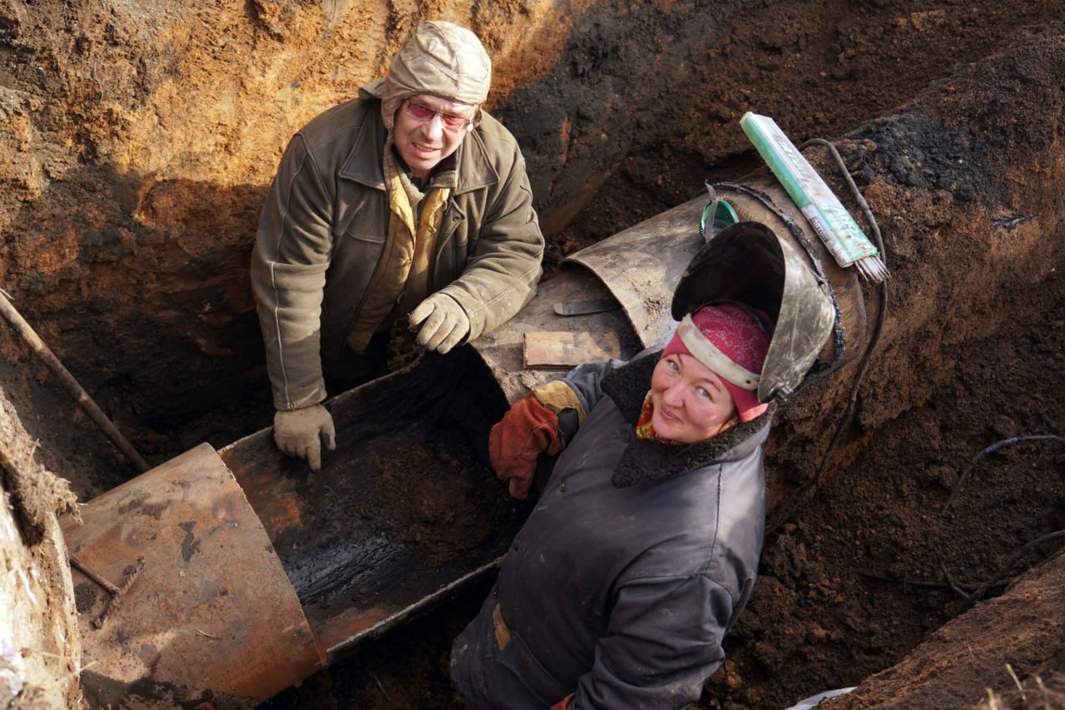Drone control. Repair of fasteners for tunnels. Pipe welding. A woman in a male profession is a common phenomenon in Donbass. Labor traditions play a role: the land of miners, metallurgists. But now the difficulties of the present time have been added to this: there are absolutely not enough men in the civilian sphere. A special correspondent for Izvestia met with representatives of the fair sex who have professions that are not the most typical for them, and found out why they chose their professions, what is more expensive than money, and how, standing knee-deep in mud with a propane cutter in their hands, they manage to feel themselves as women.
With electronics on first name terms
Anastasia Yakovleva is the head of the department for working with drones at the rescue center of the Ministry of Emergency Situations in Donetsk. The only girl in the entire republic who controls drones (and trains men, if necessary). Rank: Lieutenant. Service experience: six years. Without it, rescuers today are like without hands, or rather, like without eyes.
“My tasks are reconnaissance of the area, searching for victims, as well as photographing and video recording emergency situations,” Nastya tells Izvestia.
She's on good terms with electronics. At school I was especially strong in the exact sciences. Today she operates two drones. Among the recently completed tasks, the search for a missing person in the Amvrosievsky district and the sounding of the beach area in Mariupol, where until recently explosives were hidden in the sand, stand out. And the detection of mine petals on Petrovka in Donetsk: it was necessary to inspect the roofs of houses and courtyards from the air and clearly identify (from a height of 200 m) the location of tiny insidious shells.
Despite her civilian profile, almost every trip to the scene of an emergency is a risk, the girl explains. Firstly, rescuers are like a red rag to the Armed Forces of Ukraine: since the beginning of the SVO, 26 department employees have died in the line of duty, and 143 have been injured. Secondly, the desired target is the drone itself. More than once or twice, Anastasia and her colleagues had to leave their place of work under fire, with shells literally hot on their heels. And yet, there is no choice – to go on the next mission or refuse.
She started working with drones in 2018, when, according to her, no one really talked about drones yet.
“I wrote a thesis at the Academy of Civil Defense on the importance of using them during rescue operations,” she says. — And now I actively use it. Our efficiency thanks to UAVs increases many times over. The future, I'm sure, belongs to them.
Endurance and precision of the eye
Turner Alla Popova works with metal. Drills, sharpens, cuts. Against the backdrop of cranes, steel pipes and three-ton screw-cutting machines of the native workshop of the Torez Mechanical Repair Plant, it looks very small. On the shoulders are overalls: the uniform of the last four decades. On her head is a lilac scarf. Your hands are covered in oil (you can wash them only in the bathhouse after your shift). Two fingers after fractures look to the sides – production costs. And another ear, according to her, almost cannot hear – due to the constant noise of the electric motor. But he’s not going to leave: “there’s a lot of work, you can’t leave the workshop – every master is worth his weight in gold.” Especially after some of the workers found themselves in a combat zone.
“We service mines, manufacture and repair elements of the support that holds the underground shaft,” Alla tells Izvestia.
Pointing to the metal blanks lying in front of her on a pallet, she explains: “We grind out bolts of the required size, studs, hardware, rollers, rods, plungers. Everything is done by hand. We used to have semi-automatic machines. But over time, only ordinary screw-cutting ones remained.”
The love for “hardware,” according to Alla, was instilled in her by her father, a turner, and also a blacksmith, a mechanic, one of those about whom they say: “golden hands.” From an early age she helped him with everything: together they turned nuts, understood the mechanisms. Therefore, when after the eighth grade there was a choice of where to go, I boldly went to study to become a turner. Moreover, they promised “work in white coats, clean workshops, the most modern equipment.” After college I came to the Torezsky RMZ and stayed here.
Among the qualities that, according to Alla, a good turner needs is endurance: you have to stand at the machine from 07:00 to 15:00. Physical strength: lifting iron is required without respite. Precision of the eye. Accuracy (and even filigree). And, of course, responsibility.
“There shouldn’t be a marriage,” the woman explains. — The rest of the process depends on how you make the part. As soon as the mechanics assemble the support, so quickly the equipment will arrive in the mine, where it is awaited. You can't let us down.
In a helmet and leggings
Outskirts of the city of Kirovskoye. Snowy field. Humming excavator. The day before, a sewerage system burst here, and Vodokanal’s emergency crew is working on the spot. There are two women in this area. Valentina Kuzminichna is an old-timer at the enterprise, she manages the process. And in boots, a robe and a pea coat, Anya Polishchuk, a welder, together with the workers, standing knee-deep in the ground, shouts down the excavator and fixes problems.
Anya, as she herself puts it, is “a girl with a restless character.” I fought constantly at school. From the age of 15, I earned a penny on my own – as a watchman, security guard, plasterer, painter. She graduated from a vocational school with a degree in electric and gas welder. 12 years ago I joined the Kirov department of Vodokanal.
“And I’ve been here ever since,” she laughs. “My mother actually told me: “Study, daughter, otherwise you’ll have to dig in the ground.” So I'm poking around. I'm not complaining though, I love the job! I’d rather swing a shovel than sit in an office with papers. Moreover, the team is male, and with the guys it’s easy for me, we understand each other perfectly.
Breaks in the networks, according to Anna, occur several times a month: the pipes were laid half a century ago and have long been in need of replacement. The team's action plan is standard – go to the site, excavate the area, and identify the leak point. Next, the girl removes the leaky section of the pipe with a propane cutter. And puts a new one in its place. Welding is done in two seams, tightly. Her arsenal includes electrodes, a chisel, and a hammer for removing scale. Equipment – helmet and gloves.
— There aren’t enough welders! – the girl complains. – We only have two on site. And more is required. Young people don't want to study. There are merchandisers and managers all around.
Anna's husband is fighting. And brother. There is a three-year-old son – Maxim. It is motherhood, according to our heroine, that allows her, despite hard physical labor and a profession that is not at all girlish, to remain a woman.
Stretchers, ponchos, “goblin” costumes
Speaking about the present day, it would be wrong not to talk about professions, the profile of which has changed somewhat in the conditions of the Northern Military District. Dressmaker Alla Viktorovna Milchenko is known to many in Makeevka – a master like few. He can cut and sew a suit, a coat, and a wedding dress. For the last year and a half, the bulk of her orders have been clothing for the military. She works as a volunteer, that is, for free.
At 11:00 he arrives at his workshop – a wooden house with stove heating on the outskirts of the city. The return trip leaves around 18:00 to catch the last minibus. It all started, she said, with a video on the Internet that said volunteer tailors were needed. I called and offered my services. Since then, her sewing machine has been sewing non-stop.
“I sew tactical stretchers for evacuating the wounded,” says the woman. — Warm balaclavas and buffs. Fleece sweatshirts. White camouflage coats for scouts. Bologna poncho for artillerymen to protect them from getting wet in the rain and snow. Raincoat tents. “Goblin” suits made of shadow mesh – for snipers.
To the question “What is it like to work exclusively on a volunteer basis, tirelessly?” answers simply: “Not everything is measured by money.” And she adds that she has several certificates of gratitude. And an award badge from one of the military units. No more is needed.
#lot #work #quit #shop #master #worth #weight #gold






